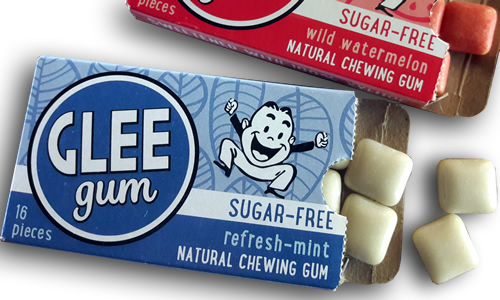Glee Chewing Gum Goes Plastic-Free!

I first wrote about plastic in chewing gum in January of 2010. At that time, there really was no brand of gum available that didn’t either contain plastic in the packaging or in the gum itself. And as I wrote back then, even Glee Gum, one of the most natural brands in town, was combining plastic with the natural chicle in its gum base.
Company owner Deborah Schimberg told me that she really wanted to get the plastic out of the gum base, but that it was difficult to find a natural substitute.  She hoped to find an alternative later that year.  Well, it’s taken longer than she expected, but finally, in 2015, Glee was able to offer plastic-free chewing gum in its original sugar-sweetened flavors and more recently in its sugar-free flavors as well.  The company sent me a few packs to try out, and while I’m not much of a gum chewer, Michael thinks it’s great!
Challenges of Developing a Plastic-Free Chewing Gum Base
I asked Deborah… Read the rest













